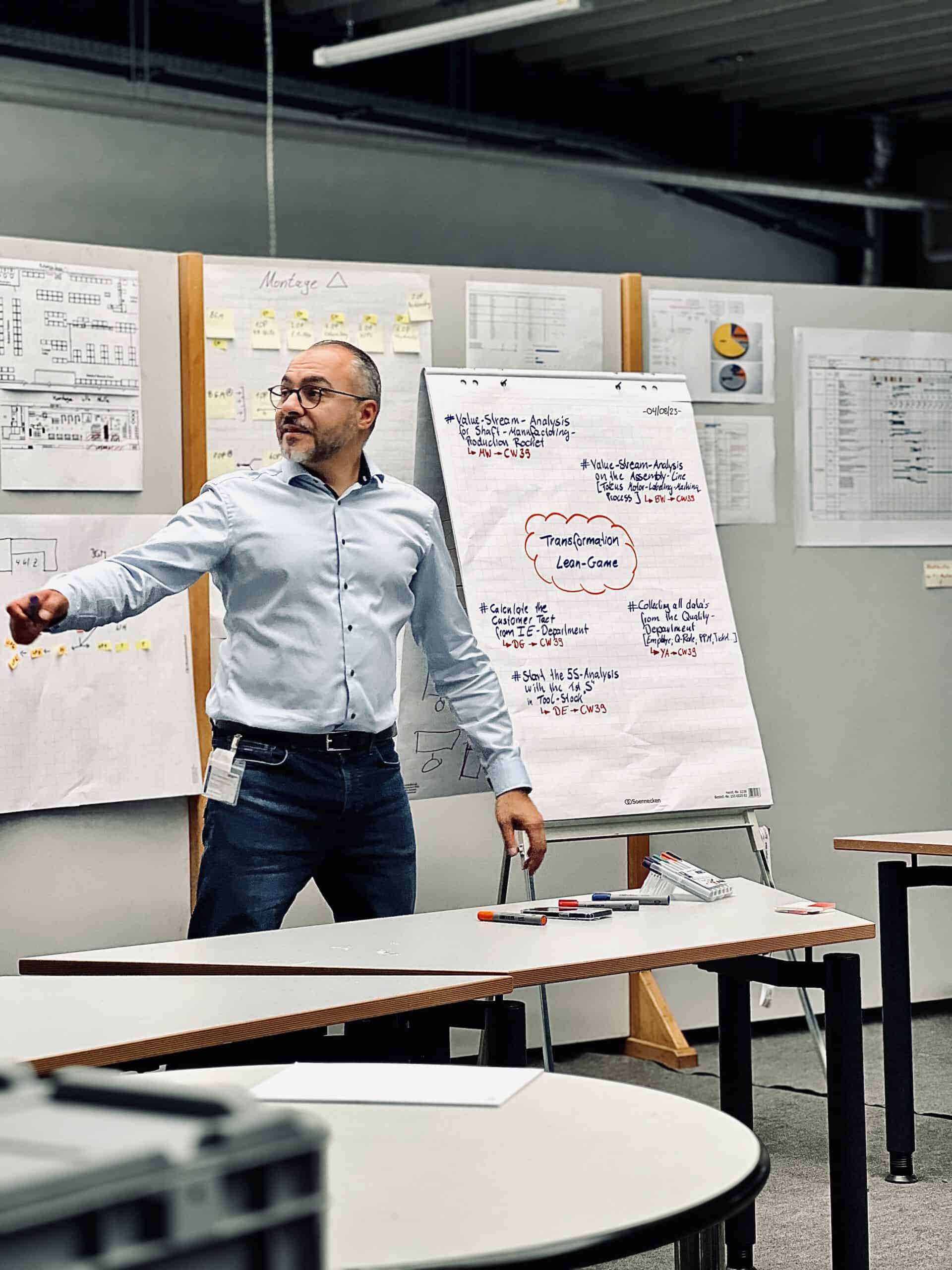
The importance of store floor management
Shopfloor management is an essential part of modern production processes and plays a decisive role in optimizing workflows and increasing efficiency. Below we highlight the importance of store floor management and how it can help you achieve your production goals.
What is store floor management?
Store floor management is a management method that takes place directly at the point of value creation - the store floor. It involves regular and structured visits to the store floor by managers and employees in order to identify problems, find solutions and promote continuous improvement. Direct interaction with the processes and employees enables transparent communication and faster problem solving.
The core elements of store floor management
Store floor management consists of several core elements that help to optimize production and increase efficiency:
- Visualization: Use of visual management tools such as boards and diagrams to visualize the current status of production, targets and progress.
- Regular meetings: Daily or weekly meetings directly on the store floor to discuss current problems, review progress and define measures.
- Problem solving: Systematic approach to identifying and eliminating problems using methods such as the 5 Why analysis or Kaizen.
- Employee participation: Involving employees in the improvement process and encouraging their ideas and suggestions for optimizing production processes.
- Standardization: Development and implementation of standards to ensure consistent quality and efficiency.
Implementation of store floor management
The successful implementation of store floor management requires commitment and a clear strategy. Here are some steps that can be helpful when introducing shopfloor management:
- Training: Training managers and employees in the principles and methods of store floor management.
- Introduction of visualization tools: Implementation of visual management tools to visualize production status and progress.
- Regular meetings: Establishment of daily or weekly store floor meetings to discuss current topics and problems.
- Promoting employee participation: creating a culture in which employees' ideas and suggestions are actively encouraged and implemented.
- Continuous review: Regular review and adjustment of store floor management practices to ensure continuous improvement.
Conclusion
Store floor management is a powerful tool for optimizing production processes and increasing efficiency. By being directly present at the point of value creation, visualizing processes and actively involving employees, companies can achieve their production goals more effectively. Successful implementation of store floor management requires commitment, training and a culture of continuous improvement, but offers significant long-term benefits for companies of all sizes and in all industries.
Your benefit
The advantages of store floor management
1
Increased transparency
Visualization and regular meetings make the production process transparent, giving managers and employees a clear overview of the current status and potential problems.
2
Faster problem solving
Thanks to the direct presence on the store floor, problems can be identified and solved more quickly, which leads to a reduction in downtimes and an increase in productivity.
3
Higher employee participation
Actively involving employees in the improvement process increases their motivation and commitment, as they are directly involved in optimizing their working environment.
4
Continuous improvement
Shopfloor management promotes a culture of continuous improvement (Kaizen), in which small but effective changes are regularly made to increase the efficiency and quality of production.
5
Better communication
Regular meetings and direct interaction between managers and employees improve communication, which leads to a better understanding and more efficient implementation of measures.

Start your project today